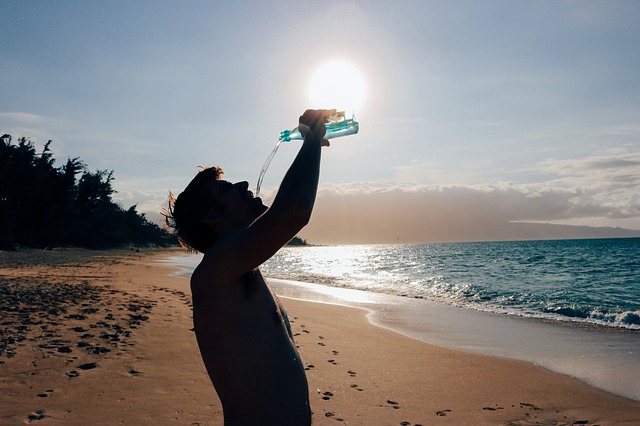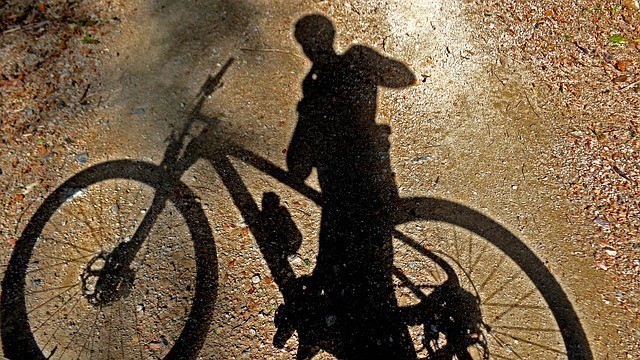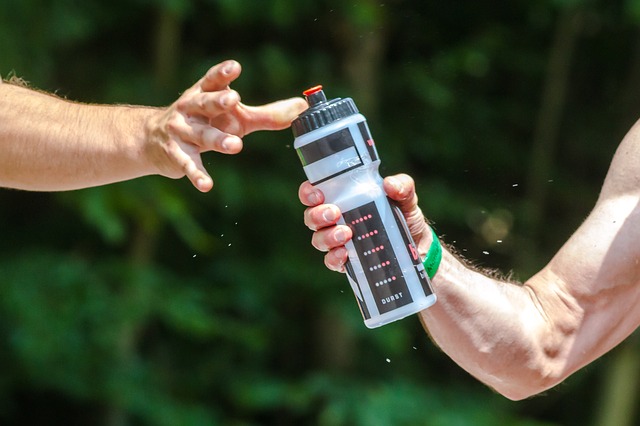Cycling Outdoors & Summer Heat Exhaustion
Jun 15th 2018
Summer this year officially begins June 21, 2018. You might already have noticed, what with summer sales and people in less clothing outdoors. With summer weather comes higher temperatures, drier climates and longer days (for those of us in countries with Daylight Savings).
Activities done out in the summer sun are fun but incredibly dangerous. The FDA and AAD (American Academy of Dermatology) recommend applying a sunscreen with a minimum of SPF 30 over all exposed skin. If you're doing water sports, or vigorous activity, you'll need to reapply the sunscreen every two hours, or what is recommended on your sunscreen packaging.

Heat Exhaustion
Heat exhaustion is common and often leads to heat stroke, which is extremely serious and sometimes fatal. There are many factors that make it more difficult for your body to get rid of heat. According to Johns Hopkins University Health Library, these are some of the factors that prevent your body from handling heat and getting rid of it:
-Being in poor physical shape
-Having an infection
-Being dehydrated
-Using alcohol before exercising
-Being obese
-Not being used to a hot environment
-Taking certain medicines such as stimulants, antihistamines, and medicines for epilepsy
-Having certain medical conditions, like sickle cell disease or conditions that decrease sweat
-Having a chronic illness
If any of these apply to you, extra care will need to be taken while you are exercising outdoors. Take it slow, do not spend more effort and time than your body can reasonably handle. Taking breaks every 10 minutes is a fantastic way to listen to your body, attend to any needs and approach being outside in a healthy manner.
What happens when you get heat exhaustion?
Rapid heartbeat
Fast breathing
Heavy sweating
Dizziness
Fainting
Nausea, vomiting, or diarrhea
Headache
Weakness
Muscle cramps
Mild, temporary confusion
Low blood pressure
Dehydration
Loss or problems with coordination
If you experience any of these symptoms, it is your body telling you to slow down, stop, rest, and recover. Pushing yourself will only lead to heat stroke- which means someone will most likely be calling an ambulance for you.

How to prevent/ deal with Heat Exhaustion/ Stress?
Sports Drinks and H2O
The human body sweats in order to regulate body temperature. As the sweat evaporates off your body, some of the heat dissipates with it as well. In order to balance the water that is leaving your body, your water intake must supplement it. Drink water often and in small amounts. Gulping down more water than your body normally takes in will only cause problems for you.
Drinking sports drinks is even better than water, for most people. Sweat contains sodium, chloride, potassium, magnesium and calcium. Sports drinks or electrolyte drinks will replenish some of the electrolytes you lose through heavy sweating.

Clothing
Wear clothing that is breathable, light and lightweight. Many exercise/ athletic clothing brands make performance clothing that wick moisture. These fabrics are usually polyester and nylon.
Body Weight
Tracking your weight over the course of several different sessions will help calculate how much water your body loses during exercise, this way you will know how much water you will need to supplement in order to stay hydrated. Non-activity water loss over 24 hours can range up to 10 quarts. Weighing yourself before and after a session is important, if you weigh more than 3%-4% less after your exercise session, your body is conserving water and you'll need to drink more (remember: often and in small quantities) during your session.
Source: https://www.hopkinsmedicine.org/healthlibrary/conditions/non-traumatic_emergencies/exercise-related_heat_exhaustion_134,258
